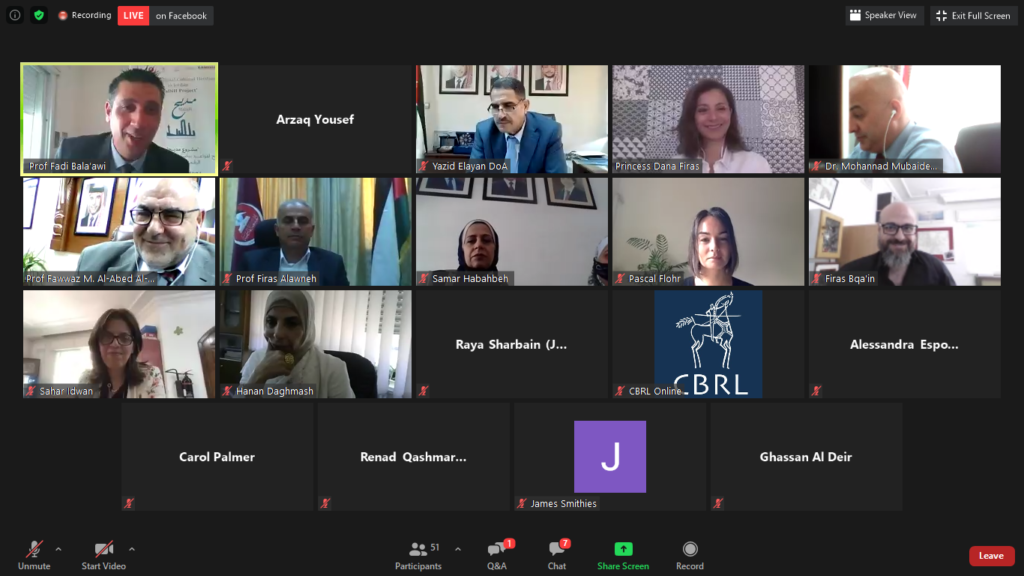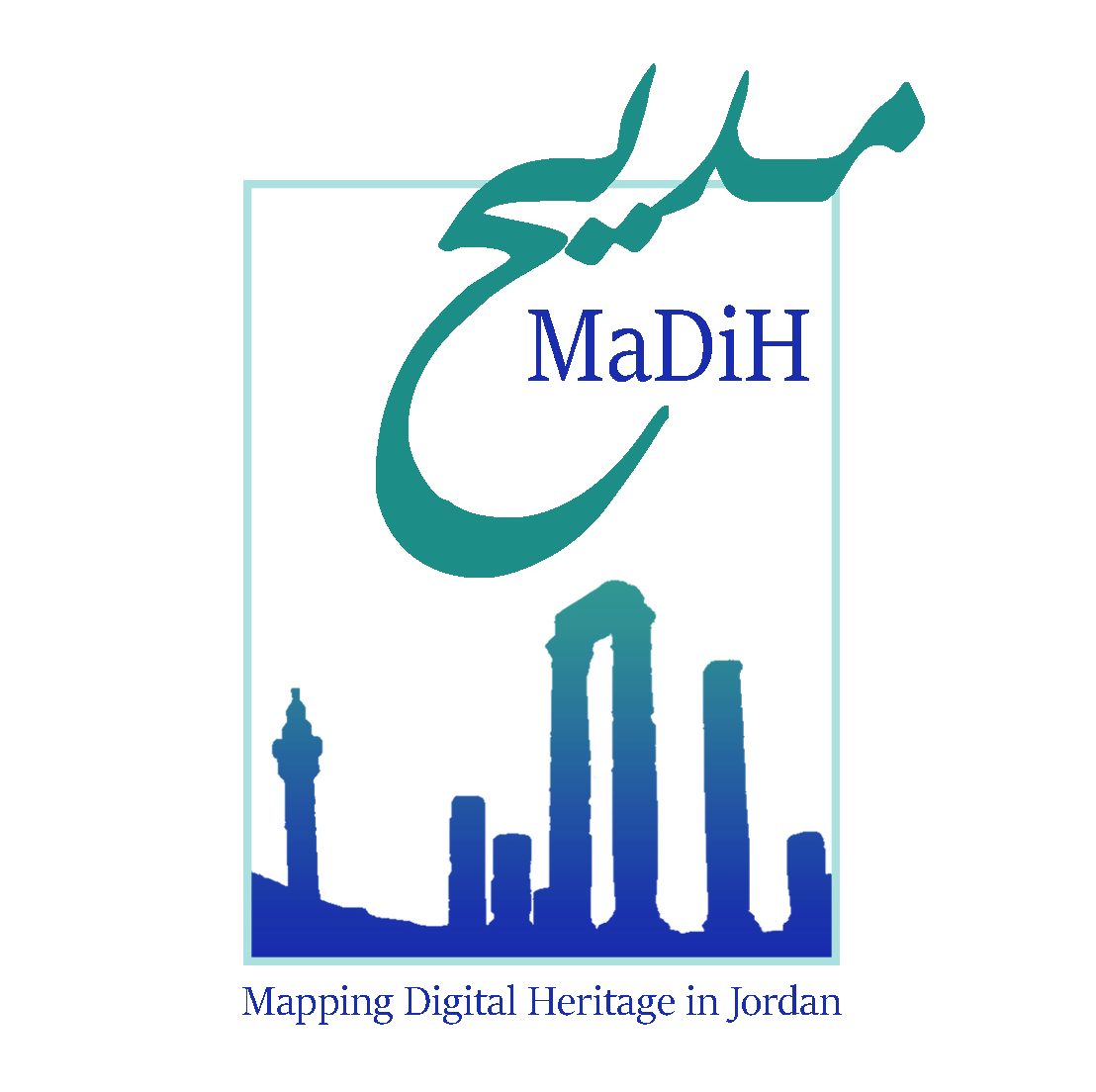MaDiH (مديح): Identifying datasets on Jordanian cultural heritage: a user feedback webinar, October 2020.
Last week’s MaDiH webinar brought together cultural heritage academics, professionals and students to review MaDiH’s data repository and give the team insights on the datasets, user-experience, opportunities and limitations.
Date of publication: 22 October 2020
By Shatha Mubaideen, Project Manager, Jordan
Under the patronage of HRH Princess Dana Firas and at the generous invitation of the Hashemite University President, Prof Fawaz Abdel-Haq, the Hashemite University, in cooperation with the Council for British Research in the Levant (CBRL), organised a two-day webinar last week as part of the MaDiH (Mapping Digital Cultural Heritage in Jordan) project to introduce MaDiH’s online data repository.
The webinar, which took place on the 13th and 14th of October, was attended by more than 70 people. The first day of the webinar began with talks from the MaDiH steering committee members. HRH Princess Dana Firas then highlighted the significance of constructing cultural heritage protection efforts on academic scientific bases with reference to a network of local and international resources. That would, in turn, facilitate access to reliable information to identify the needs of the heritage sector and support the decision-making process with the use of modern technology.
In recognition of the Hashemite University’s role in cultural heritage preservation, HE Prof. Fawaz Abdul Haq indicated that the university supports the MaDiH project as a pioneering initiative that will provide tremendous opportunities for improving public access to the digital content on Jordanian cultural heritage, and enhance the development of creative learning and education tools.
HE Mr Yazid Elayyan, Director General of the Department of Antiquities, pointed to the need for partnerships with scientific institutes, universities, academic institutions and international projects, such as the MaDiH project, to support the Department of Antiquities in the protection and management of Jordanian cultural heritage. He also added that the results of the project are an invaluable addition to the digital heritage library.
Prof Firas Alawneh, Dean of Queen Rania College of Tourism and Heritage, focused on the contribution of the MaDiH project in linking research and practice by creating a partnership between academics and institutions working in cultural heritage protection.
The principal investigator of the MaDiH project from Jordan, Prof. Fadi Balawi, discussed how the MaDiH idea of creating a comprehensive national digital repository of cultural heritage datasets emerged from the attention that the local and international research community pays to Jordan’s rich and very diverse tangible and intangible cultural heritage. The principal investigator of the MaDiH project from the United Kingdom, Dr. James Smithies, explained the technical background to the project and opportunities for future development.
Over the two days, members of the MaDiH team presented the most prominent aspects of the project and representatives of local institutions working on documentation and archiving shared their experiences. These contributions included notable presentations by Prof Muhannad Mubaidin, Director of the Royal Hashemite Documentation Centre, Ms Hanan Daghmash, from the Ministry of Culture, and Mrs Samar Habahbeh and Mrs Hala Al-Syof, of the Department of Antiquities.
Engaging dialogues and discussions took place between the attendees and the organisers of the workshop over the two days, during which challenges and opportunities were reviewed, in addition to the future of the MaDiH project and its sustainability to become a gateway to explore Jordan’s diverse cultural heritage online.


